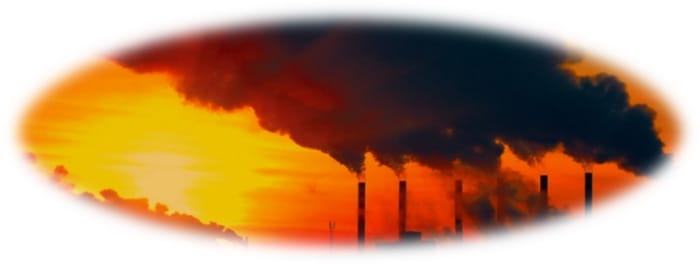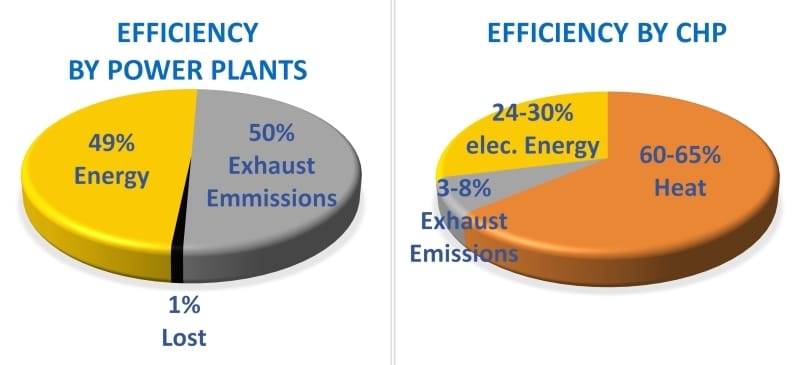Combined Head and Powersystem (CHP)

Benchmarking Study of Power
The topic of combined heat and power units (CHP) are becoming more and more important to those who care about our environment and our future. And this with a good reason, because cogeneration of heat and power are increasing the combustion process, reducing emissions increasing energy in a very efficient way.
Around 50% and more of our daily energy consumption are totally lost in form of waste heat and through the chimneys pipe of modern power plants from electricity companies and only 49% of the Energy are used every day.
In contrast to a CHP the effected heat as well as the kinetic energy of the generator will be reused. Consequently, the absolute efficiency level is around 90%, (+/-2%) - depending on the used aggregate.

In other worlds it means a CO2 reduction of more than 40% can be achieved!
Further Essential Points of CHP
In addition to the environmental and financial aspects as well as the energy saving issue two other important advantages are at least to be mentioned:
a) To have an in house CHP means to have decentral power unit that make you more independent from the public utilities. Imagine there are a CHP unit in every houses, than this swarm of CHP could replace a whole power plant plus the electricity grid is far less vulnerable than before.
b) The use of renewable energies like solar, wind, wave, etc. are linked to a high fluctuation of generated achieved and required energy, which has to be compensated. By a simply battery system this goal cannot be fulfilled and met today. Therefore a cogeneration of heat and power plant with its short lead time would be the perfect solution to safeguard the implementation of renewable energies, zero emission.
Classification of CHP
Talking about Cogeneration Plant, it has to be clearly distinguished between their physical and technical characteristics in advance. Generally it is divided in:
• Micro-CHP for home use that starts with totally approx. 3-5 kW
• Mini-CHP for stores, offices and hotels approx. <30kW
• Classical CHP for industrial use with approx. >30kW
Micro-CHP produces in comparison to classical CHP more heat which are in these case more desirable. According to our experiences and studies we have made remarkable results by choosing the Stirling engine. Nevertheless, it has to be pointed out, that the aggregates have to be selected always according to the application and anticipated goal.
Different Systems are for various applications available:
Nano CHP starts producing
electrical power: 0,25 kw till 2 kW
thermal power: 1 kW till 4 kW ...good for family homes
Micro CHP starts producing
electrical power between approx.: 1,5kW till 5 kW
thermal power between approx.: 4 kW till 20 kW ...good for multiple family homes, apartments buildings,...
Mini CHP starts producing
electrical power between approx.: 16kW till 50 kW
thermal power between approx.: 200 kW till 500 kW …good for apartment blocks, businesses hotels, small hospitals,...
CHP starts producing
electrical power between approx.: 50kW till 5 MW
thermal power between approx.: 20MW till 100 MW …good for apartment blocks, industry, big hotels,…
(Bigger) CHP starts producing
electrical power between approx.: 5 MW > …good for small cities or part of cities,…
PACIFIC is looking forward to provide you the desired CHP units for your specific application.
back to Renewable Energy


